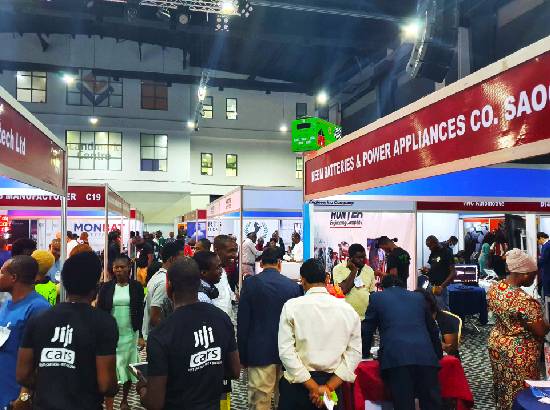
•Stakeholders advocate development of local industry
Stakeholders at the just-concluded West Africa Automotive Show (WAAS) advocated the development of local automotive components in Nigeria.
The stakeholders, who took turns to explain the importance of local automotive components, said the country could be saving enough foreign exchange if components parts were produced locally.
Chairman, WAAS, Luqman Mamudu, said Nigeria accounts for about 78.8 per cent of automotive components imported to West Africa.
According to him, about $6.2 billion is spent in importing automotive components and parts to the region yearly with Nigeria alone accounting for $4.2 billion.
“We were simply exporting jobs outside Nigeria because all these magnitudes of components were produced in factories and almost all these factories are in our region,” he said.
Mamudu, who is a former director at the National Automotive Design Development Council (NADDC), stressed the importance of the show with the theme, ‘Enabling automotive component and part manufacturing in West Africa’.
Deputy Director of the Federal Ministry of Industry, Trade and Investment, Olumuyiwa Ajayi-Ade, emphasised the importance of the show, noting that it is in line with Federal Government’s efforts to foster local auto component manufacturing and regional collaboration.
Ade-Ajayi, who represented the Permanent Secretary, Nura Abba Rimi, added that the automotive sector plays a crucial role in driving the economy, creating employment opportunities and fostering technological advancement.
“It is also to foster a conducive environment for the automotive industry to strive,” he said.
Director General, NADDC, Joseph Osanipin who represented the Minister for Industry, Trade and Investment, Doris Nkiruka Uzoka-Anite, said no sector can match the automotive industry if it is fully developed.
“It is number one. If you see in developed countries, they contribute 10 to 15 per cent to the economies. That is where we want Nigeria to be. So, we want people to be aware of the opportunities in the auto industry.
“The idea is to network and discuss how to bring this technology to Nigeria, most of these cars can be manufactured in Nigeria, we only need to pull the market, the market is there but we are just selling shallowly. When you look at the volume of parts sold by ASPMDA members in a week, you will be surprised,” he said.
He said the council has identified components manufacturing centres at Nnewi in Anambra state to help harmonise the development of automotive components parts.
The President of the Auto Spare Parts and Machinery Dealers Association (ASPMDA), Ngozi Emechebe, highlighted the challenges of the industry which is posed to fake parts, the economy and the wellbeing of the country.
His words: “The issue of fake parts is one that I am very concerned about because it has been discussed in many other conferences before now and it is still a relevant topic even after so many years of discussion. Fake auto parts are counterfeit or unauthorised reproductions of parts made to look like genuine parts, but often with inferior quality. Fake parts may cost significantly less than genuine parts, but they are often unreliable and potentially dangerous.
“In Nigeria, the issue of fakery is not new as there is hardly any industry or sector that is not challenged by the faking of original products. However, in the auto sector, the use of fake parts has led to many road traffic crashes on our highways resulting in injuries and deaths; and economic wastage as unsuspecting patrons of fake parts are forced to spend more in the long run.
Experts have also estimated that Nigeria loses about N100 billion yearly as a result of road crashes, many of which are caused by the use of fake parts on automobiles.”
The issue he said has also contributed significantly to stunting the genuine growth of the automotive industry in Nigeria.
“The use of genuine auto parts comes with a lot of benefits such as safety which should be a top priority for any vehicle owner. Investing in high-quality automobile spare parts ensures your vehicle is safe and reliable and it also ensures guaranteed warranty protection.
Other benefits associated with the use of genuine parts include lowering total cost and ensuring quality and reliability. A non-genuine spare can offer a lower “up front” cost. This may provide a short-term gain, but it takes no account of the total cost,” he said.













